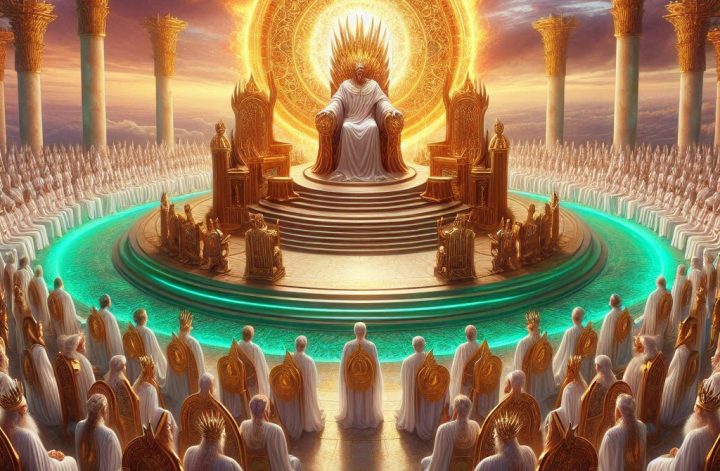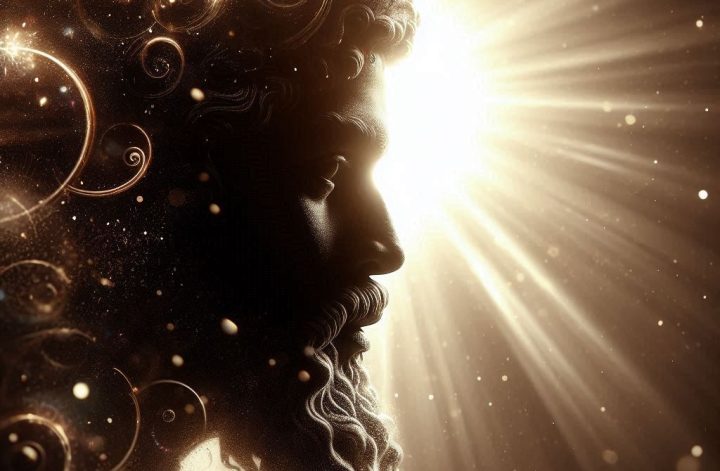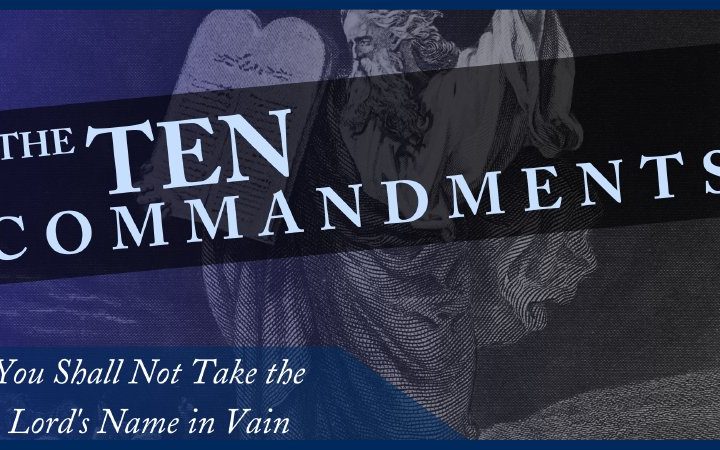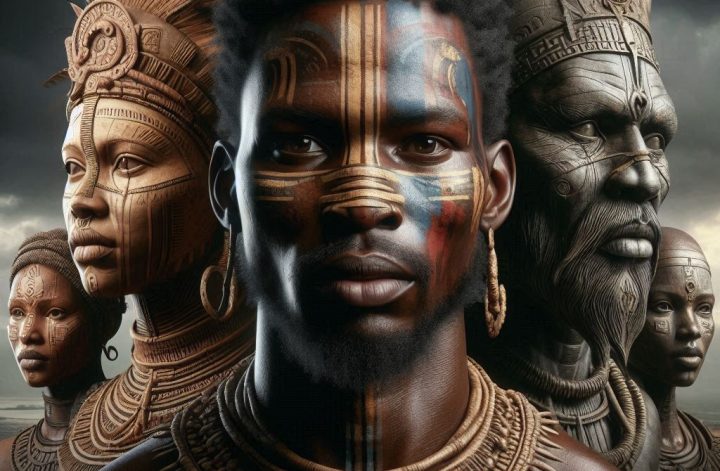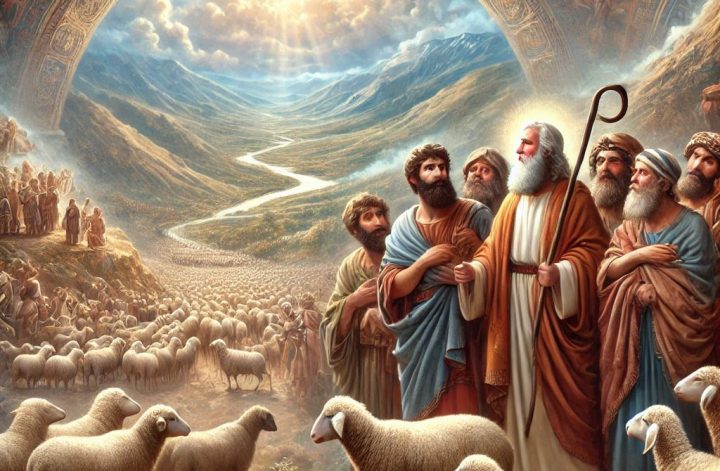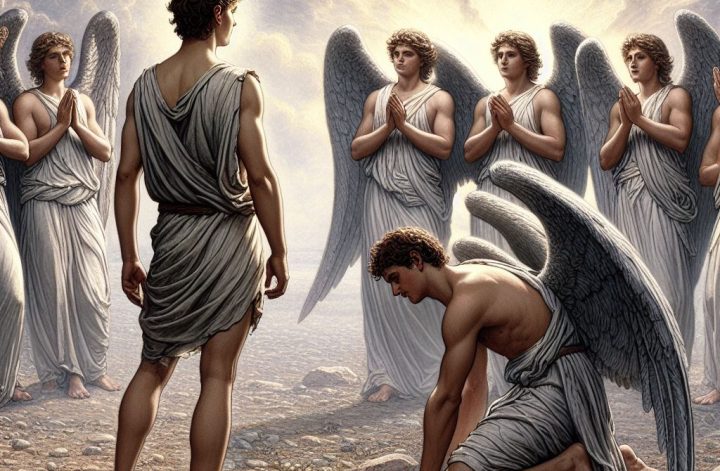With a joking undertone, I wrote earlier that had John written the book of Revelation as a graduate school work in today’s world, he would score an “F” for plagiarism – failure to cite his sources. I was not exaggerating. In Part 1, I demonstrated how John uses the finest textual details to make theological points. In Part 2, we considered the human and angelic identity arguments of the angels of the seven churches in Revelation. Something similar is going on with our present subject of the identity of the twenty-four elders. Are they human or divine beings? As it turns out, John provides enough data to argue both ways. John uses many different Hebrew Bible imagery, allusion, and ideas in describing the elders in Revelation.
I recently had a Facebook discussion with a Catholic priest, Chinaka Justin Mbaeri, on this subject. He uses his page to educate readers on the heritage and doctrines of the Catholic Church while also correcting what he believes are dangerous ideas to the faith. In one such post, the priest argues at a considerable length in defence of the Catholic Church’s uses of images and statues in its affairs. He argued that Protestants of Nigerian extractions are ill-informed about the practice and so condemn what they know not. He pointed out that Catholics do not worship images or statues but use them as visual aids to teach members of the faithful exploits of saints. He vigorously defends these uses, pointing out that the Bible doesn’t condemn the use of images per se but strongly prohibits worshiping images – and I think he is right. He then says that when Catholics seek the prayer of saints, they are under no delusion that the saints (or their statues) have any power to grant prayers. On the contrary, the idea is to enlist the saints, who are already perfected and in God’s presence, to pray alongside the earthly faithful. He relies on Revelation 5:8 and 8:3-4 as the critical passages for the practice, which is where I disagree. Let me quote these verses below for easy reference before sharing the unedited exchanges:
Singlehood, Polyandry, and Practical Applications (Polygamy Series Part 2, Finale)
African Pentecostals (and their Western Evangelical counterparts) have been taught to look to the pre-Fall portions of Genesis and post-glorification texts of Revelation whenever they want to establish what is ideal. In fairness, the principle works sometimes. For instance, one may legitimately say that the original human diet was plant-based. God says in Genesis 1:29, “I give you every seed-bearing plant on the face of the whole earth and every tree that has fruit with seed in it. They will be yours for food.” Although many Christians dislike this biblical dietary idea, it was really after the Fall that humans ate animals, according to Genesis. Also, it is improbable that glorified humans in the new Eden (Revelations 22) will eat animals for food.
However, the principle does not work with the idea of an ideal marital status. As already argued, not only does Genesis not teach monogamy as the godly form of marriage, there also will be no human marriages post-glorification (Matthew 22:30). Indeed, the only marital language in the New Testament describing Christ’s union with the church is arguably metaphorically polygamous (Ephesians 5:24-27, 2 Corinthians 11:2, Revelations 19:7-9, 21:2), since the church comprises millions of people.
European Missionaries in Africa and Polygamy: Polygamy in the New Testament (Series Part 1)
“Our thinking has been so influenced by western theologians that we still continue to beat the old missionary drums which summon us to see that our cultural heritage is incompatible with Christianity.” – Rev. David Gitari, Kenyan Anglican Archbishop
A man cannot give what he does not have. We could add to this by borrowing from a Yoruba saying that he who has not been to another’s farm may erroneously assume that his father’s farm is the grandest. These maxims are fair descriptions of the European missionaries who attempted to tackle polygamy on the continent. Coming from a culture where men had multiple unmarried mistresses, the European missionaries were ill-prepared to deal with Africa’s ubiquitous form of marriage: polygyny. Polygyny is a type of polygamy in which a man has more than one wife, and this was a pretty common form of marriage in Africa before and after European encounters. Unsurprisingly, white missionaries assumed the worst about the polygyny they saw in Africa.
The value of this conversation is not merely historical; it holds significant relevance today. Imagine a scenario where Jesus miraculously saves a Muslim man – as he is actively doing throughout the Muslim world today. However, this man has four wives, each with at least three children. When he and his family approach our churches seeking membership, we face a crucial decision. We can either follow the path European missionaries took in the past or embrace better, more effective alternatives. The choice is clear: we must seek Christ-honoring solutions that respect faith and family dynamics.
European Missionaries in Africa
As Douglas Falen writes, European missionaries “struggled with establishing the notions of romantic love and individualism in the face of what they perceived as the unromantic, duty-oriented style of African marriage” (52). Perhaps from a noble heart, they also particularly deemed polygyny as devaluing African women. Indeed, they judged that African men often used their women as pawns in polygynous marriages, as women “were usually the involuntary victims of the custom” (Gitari 3). Notermans echoes a similar thought when she writes that these missionaries to Africa not only “criticised polygyny as an uncivilised, unchristian, and immoral custom as it violated the universal rule of monogamy,” but they also “felt especially sorry for women because they considered them their husbands’ slaves and the powerless victims of an African tradition” (341). Of course, every African has seen a polygynous marriage gone wrong, much like every European has seen a monogamous marriage gone awful. Still, the European characterization of African women as needing salvation from polygynous marriages is not accurate. As we shall see, African women are often willing participants in polygynous arrangements.
The Face of God in the Bible: From Eden to Revelation
The “face of God” is a theme from Genesis to Revelation. Not surprisingly, the subject has also piqued the interest of amateur apologists for Islam and atheism. I have, over the years, seen several memes alleging the existence of a contradiction in that Christians both affirm that no one has ever seen God and that Jesus is God. As is often the case, there is a legitimate question behind it.
Recently, I had a friendly exchange with a Patristic scholar who studied the writings of the post-Apostolic Church Fathers some months ago. This individual made a claim that got my attention. He posits that God the Father will remain hidden from glorified believers even in the coming age. He got my attention and motioned the cogs and gears in my head. As it turns out, this is a rather fascinating and rich biblical theme. Below is my exploration of the subject.
In the Beginning in the Garden
The very first page of the Bible introduces a reader to a creator who molded humans and breathed into his nostrils. If this description is taken literally, we may reasonably surmise that the creator has a face – after all, the animated clay is supposed to have been made as an image of the creator, and it has a face. Also, as far as we can tell on Earth, breathing typically requires a face.
Insights into the Third Commandment: Taking God’s Name in Vain?
Background
My six-year-old came running, “Daddy, daddy, my sister is being bad.” When I enquired about what the sister did, the older one said, “she is saying God’s name in vain.” So, I pressed further, “What exactly did she say?“ She answered,” “Oh my God.” I dismissed the issue by saying, “That’s not God’s name.”
I have no idea where my daughter got that lesson from, but it is pretty pervasive in our churches since the King James Bible gave us the following translation of Exodus 20:7,
Exodus 20:7 KJV
Thou shalt not take the name of the LORD thy God in vain; for the LORD will not hold him guiltless that taketh his name in vain.
There are scholarly debates on how to number the commands. Some scholars believe Exodus 20:7 is the second command in the Ten Commandments, also known as the Decalogue. In this piece, I shall stick with the common belief that it is the third Commandment.
On John 10:34-36: Humans or Gods?
We have had to study John 10 when we were concerned about something Jesus teaches about salvation. We are back in John 10 in this series for a different reason. Indeed, we have addressed the matter of the gods in John 10 in the past, but that treatment was brief and left much room for misunderstanding. The goal is to build on the earlier material while retaining the earlier blog entry as a standalone article.
Our ultimate aim is to understand Jesus’ comment to his Jewish interlocutors in 10:34 – 36:
John 10:34-36 ESV
[34] Jesus answered them, “Is it not written in your Law, ‘I said, you are gods’? [35] If he called them gods to whom the word of God came—and Scripture cannot be broken— [36] do you say of him whom the Father consecrated and sent into the world, ‘You are blaspheming,’ because I said, ‘I am the Son of God’?
In this passage, Jesus references Psalm 82 to help his claim. This means that we need to understand the Psalm in its context to understand Jesus’ use of it in John 10. That will help us grasp what John 10:34 – 36 is all about. However, in order to understand Psalm 82, we need to address a few relevant points. We begin with the small matter of heaven and hell.
The Covenant Promise: Abraham’s Blessing, Lost Sheep of Israel, and Jesus
Why Abraham?
Scholars have long recognized that the first 11 chapters of Genesis serve as an extended prologue, providing etiological grounding, among other things, for the accounts that follow. Chapter 12 features the calling of Abram. Why did the calling of Abraham become necessary?
Genesis begins by narrating how God, wanting to make creatures that can image him, prepares a fitting environment. He then creates Adam and Eve and gives them instructions to follow – instructions they can carry out. However, other forces are vested in God’s project. Before long, the project was derailed when only two humans were involved. Things only got worse. By the time four named individuals were involved in the project, a murder had occurred. By the time of Genesis 6, things had become so dire that even God regretted having created humans. Clearly, the Project was not going well. What was God to do — scratch the project altogether? No, that would be a resounding victory for the sinister forces that thwarted his original plans. Start afresh? Yes, but not entirely from ground zero. So, in a sense, the restart is a continuation. Abraham would have to do.
What is Abraham’s qualifying attribute for this mission? The most noticeable feature is that he was childless, and his wife was past the age of childbearing. In other words, though God wants a nation of people, he has chosen a barren couple for that mission. God has chosen someone who requires a miraculous intervention to get the project back on track. He said to Abram:
Genesis 12:2 ESV
And I will make of you a great nation, and I will bless you and make your name great, so that you will be a blessing.
Of course, becoming a great nation implies having many children and descendants. Sounding like a good deal to the ancient Near-Eastern businessman, Abram obeyed. While he was on his way to where God sent him away from his home country, at the oak of Moreh, and as if to make the point transparent:
Genesis 12:7 ESV
Then the LORD appeared to Abram and said, “To your offspring I will give this land.” So he built there an altar to the LORD, who had appeared to him.
Again, Abram is assured that he will have children of his own. This, especially from Abram’s perspective, is a significant blessing.
The Quran and Judeo-Christian Pseudepigrapha (Part 5, Finale): The Crucifixion and Trinity
We have seen enough examples to demonstrate that some extra-biblical materials in the Quran ultimately derived from Judeo-Christian writings, whether commentaries or creative fictional works. There are other examples one may cite, such as how a raven taught Cain to bury his murdered brother, Jesus talking as an infant, Joseph’s torn tunic (establishing his innocence with Potiphar’s wife), and Jinn being created from fire. These all derived from Jewish exegetical works. These observations undermine certain critical Islamic beliefs.
First, the idea that the Quran is a perfect revelation from God given to restore corrupted biblical materials or details is undercut. Muslims typically believe this idea not because there is such evidence of corruption in the Bible but because many of them believe that the Quran says so, and they believe the Quran. (At this point, the typical Muslim reader thinks of differing details in the original Biblical manuscripts as evidence of corruption. Yes, “corruption,” but not the kind that helps the Quran’s narrative. Furthermore, Quranic manuscripts also show differing details as well. See our dedicated treatment of this issue here.) Second, the extra-biblical details that the Quran features are from known fictional sources. As we shall see soon, the Quran preserves evidence of seventh-century critics pointing out to Muhammed that his stories were not original but adaptations of old sayings. In light of all we have said, let us now look into the Quran’s position on two Christian doctrines: the crucifixion of Jesus and the Trinity.
The Quran and Judeo-Christian Pseudepigrapha (Part 4): Quran 3:35-44 and the Protevangelium of James
John the Baptist was a weird but essential figure in the ministry of Jesus. The Gospels suggest that the men are cousins through their mothers. John’s parents were Zechariah and Elizabeth. Jesus’ parents need no introduction. The Gospels, especially Matthew and Luke, only go as far back in their stories as when Joseph and Mary were already betrothed. Hence, we have no biblical records of the birth of Mary or Joseph.
The Quran, on the other hand, has quite a bit to say about the birth of Mary, her childhood, and, as I will explain, how Joseph was chosen for her as a husband. We find this story in Quran 3:35-44,
Surah Aal-e-Imran, Verse 35:
إِذْ قَالَتِ امْرَأَتُ عِمْرَانَ رَبِّ إِنِّي نَذَرْتُ لَكَ مَا فِي بَطْنِي مُحَرَّرًا فَتَقَبَّلْ مِنِّي إِنَّكَ أَنتَ السَّمِيعُ الْعَلِيمُ
When a woman of Imran said: My Lord! Surely I vow to Thee what is in my womb, to be devoted (to Thy service); accept therefore from me, surely Thou art the Hearing, the Knowing.
The Quran and Judeo-Christian Pseudepigrapha (Part 3): Quran 2, Genesis Rabbah, and the Apocalypse of Moses
Page 2 of the Bible recounts the story of Adam’s creation. Of all the details given, nothing is said about how angels felt about the creation of humans. In fact, if one does not have other later biblical information to go by, one wouldn’t even know that angels existed. The Quran, on the other hand, has much to say about how angels felt about God’s intent to create humans. All of them, at first, were opposed to the creation of humans. But after Adam demonstrated his superior knowledge, many angels changed their minds. Satan, however, never accepted the idea. In fact, the Quran teaches that Satan was cast away from heaven because he would not accept God’s sovereign choice to create humans.

